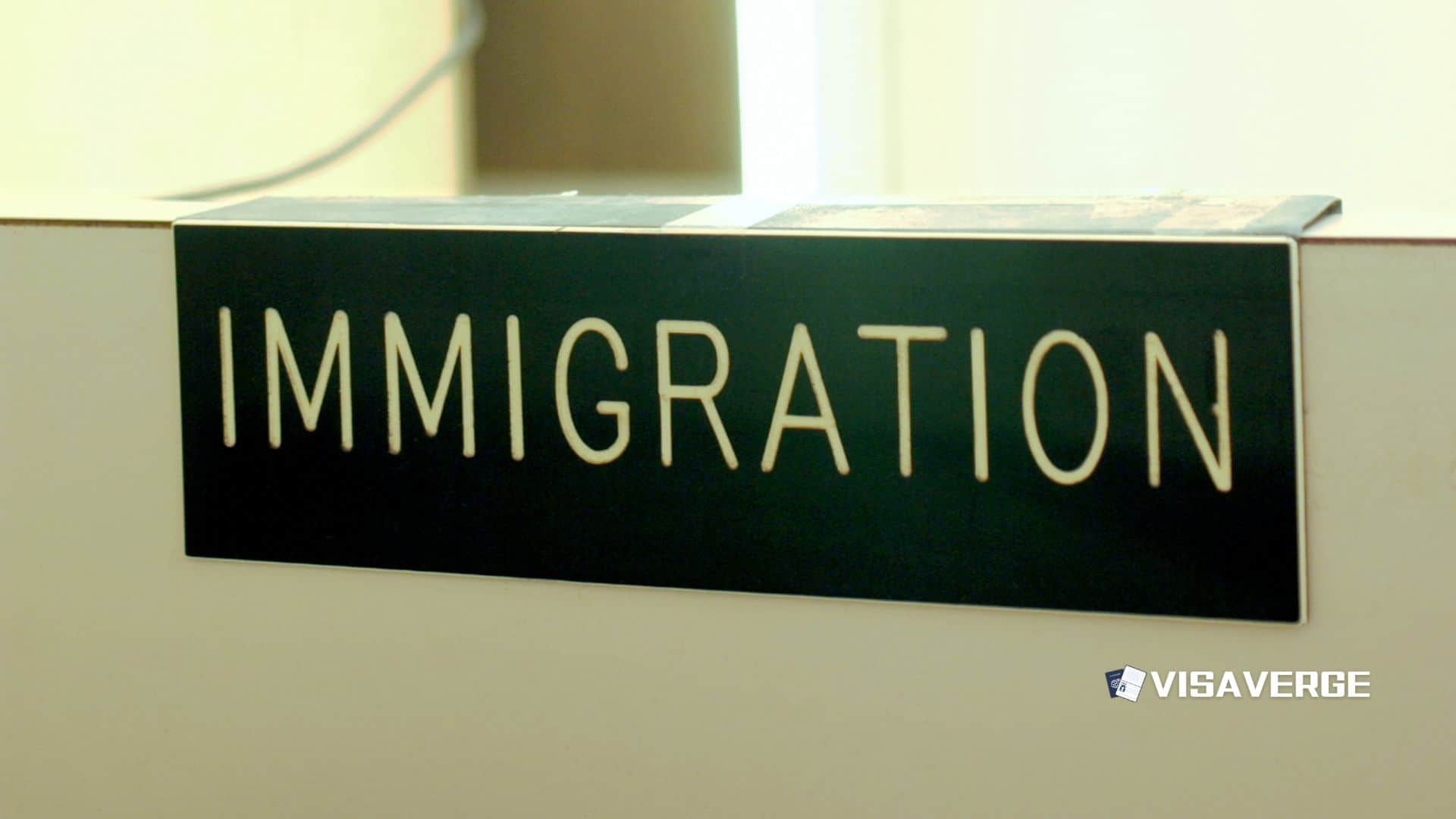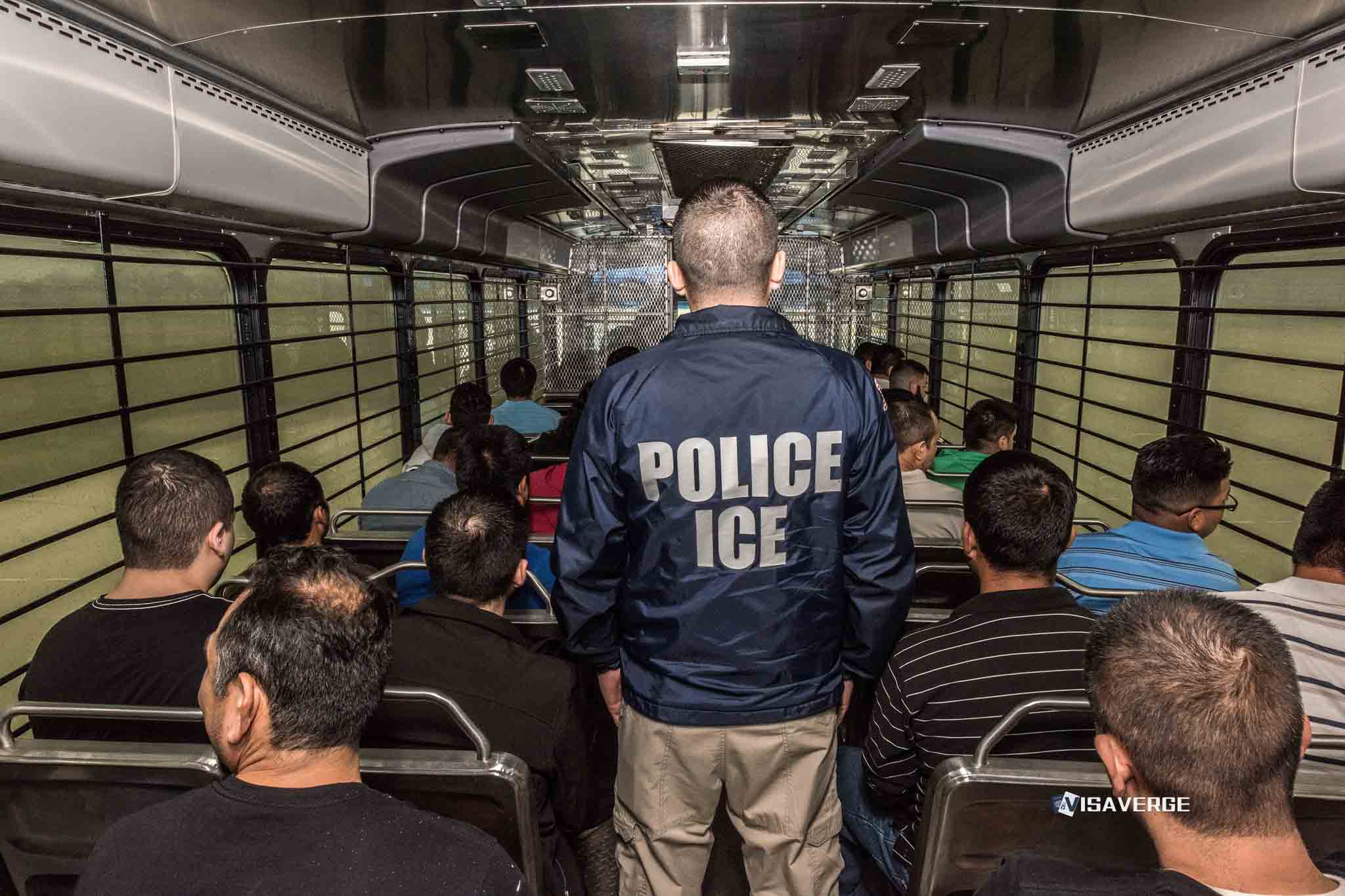Key Takeaways
• Virginia prosecuted seven illegal reentry cases as part of DOJ’s enforcement focus since January 2025.
• Governor Youngkin’s Executive Order 47 enables Virginia police to assist ICE under 287(g) agreements.
• Virginia leads national enforcement with over 2,000 removal orders and a special task force arrests surpassing 1,000.
Federal and State Immigration Crackdown in Virginia: Seven Illegal Reentry Cases Signal New Era of Enforcement
Federal and state authorities in Virginia have stepped up immigration enforcement, with seven recent illegal reentry prosecutions marking a clear shift in policy and practice. On June 6, 2025, U.S. Attorney Erik S. Siebert announced updates on these cases in the Eastern District of Virginia, reflecting the Department of Justice’s renewed focus on prosecuting individuals who return to the United States 🇺🇸 after being deported. This move is part of a broader national push to strengthen immigration enforcement, especially under the Trump administration’s policies since January 2025.

Illegal reentry is a federal crime under 8 U.S.C. 1326. It means someone who was previously deported or removed from the United States 🇺🇸 has come back without permission. The Department of Justice (DOJ) is now making these cases a top priority, especially in states like Virginia, where enforcement efforts have grown rapidly.
Let’s break down what’s happening, why it matters, and what it means for immigrants, families, and communities across Virginia.
Seven Illegal Reentry Cases: Who, What, and Why Now?
The DOJ’s recent announcement highlights seven cases of illegal reentry prosecuted in Virginia. These cases are not isolated; they are part of a growing trend. In March 2025 alone, there were 2,482 illegal reentry prosecutions nationwide, up from 2,062 in February, according to federal court data.
Among the most notable cases:
- Carlos Azucar-Menjivar, a 27-year-old from El Salvador, pled guilty to illegal reentry after being deported for previous felony convictions.
- José Luis Romero Lopez, a 47-year-old Salvadoran national, received a sentence of one year and six months in prison for returning to the United States 🇺🇸 after removal.
These prosecutions fall under the DOJ’s “Securing Our Borders” initiative, which aims to bring criminal charges against people who break immigration laws. This approach matches the Trump administration’s renewed focus on strict immigration enforcement.
Why Virginia? The State’s New Role in Immigration Enforcement
Virginia has become one of the top five states for aggressive immigration enforcement. According to the Transactional Records Access Clearinghouse (TRAC), over 2,000 Virginians received removal orders in March 2025, making Virginia the fifth-highest state for such orders. The Richmond area alone saw more than 300 removal orders, with:
- Richmond city: 126
- Chesterfield: 116
- Henrico: 81
Fairfax County stands out nationally, ranking in the top 10 U.S. localities for immigrants ordered removed, with 504 cases.
This surge is not just about numbers. On February 5, 2025, Immigration and Customs Enforcement (ICE) and the Federal Bureau of Investigation (FBI) conducted a joint operation in Annandale, Virginia. They arrested seven people who were in the country illegally, including:
- A 51-year-old Mexican national with a previous deportation and a conviction for driving while intoxicated (DWI)
- A 36-year-old Nicaraguan national who refused to comply with a removal order
- Several Guatemalan, Honduran, and Salvadoran nationals
These actions show how federal and state agencies are working together to target specific individuals, especially those with criminal records or outstanding removal orders.
Governor Youngkin’s Executive Order 47: State-Federal Cooperation
On February 27, 2025, Governor Glenn Youngkin signed Executive Order 47, directing Virginia’s law enforcement and corrections officers to help federal immigration authorities. This order created formal partnerships between state agencies and ICE through Section 287(g) agreements. These agreements let state and local police act as federal immigration officers in certain situations.
Key points from the executive order:
- Virginia State Police (VSP) must enter a “Task Force Model” agreement with ICE. This allows state troopers to enforce some immigration laws during their regular duties, but only with ICE oversight.
2. Virginia Department of Corrections (VADOC) must enter a “Jail Enforcement Model” agreement with ICE. This focuses on identifying and processing immigrants who are in state prisons and may be removable. - The state’s public safety secretary must contact every local and regional jail in Virginia to ask for a certification confirming full cooperation with ICE for all enforcement and removal operations.
Governor Youngkin justified these steps by pointing out that, as of February 27, 2025, there were 946 inmates in Virginia’s prison system with open immigration detainers. According to the executive order, nine out of ten of these detainees are violent criminals, with four out of ten identified as rapists or sexual assailants, and two out of ten as murderers.
For more details on how these agreements work, you can visit the official ICE 287(g) program page.
Virginia’s Immigration Enforcement Task Force: A National First
In February 2025, Virginia launched the country’s first task force focused on fighting illegal immigration and international gangs. By May 2025, Governor Youngkin announced that the task force had arrested over 1,000 alleged unauthorized immigrants in just two months.
However, officials have not shared detailed information about these individuals or how they are linked to gangs like MS-13 or Tren de Aragua. This lack of transparency has raised questions among advocates and community members.
The task force’s creation and rapid results show how Virginia is leading the way in state-level immigration enforcement, working closely with federal agencies.
The National Picture: More Prosecutions, More Pressure
Virginia’s actions fit into a bigger national trend. According to TRAC, immigration prosecutions jumped in March 2025. Illegal entry prosecutions under 8 U.S.C. 1325 nearly doubled from 822 in February to 1,660 in March.
Since President Trump took office in January 2025, the main goal has been to increase civil arrests and removals of immigrants. However, these numbers have not yet reached the administration’s targets or gone much higher than the levels seen under President Biden.
Still, the DOJ’s focus on illegal reentry cases and the use of state-federal partnerships signal a tougher approach to immigration enforcement.
Local Cooperation and Pushback: Not All Agree
Virginia now has 21 signed and pending 287(g) agreements with ICE. This is less than 10% of the hundreds of localities and state agencies in the state. Most agreements are in Republican-leaning counties, but there are exceptions, such as Loudoun County. Some state agencies, like the Virginia Department for Wildlife Resources and the Marine Resources Commission, also have agreements.
However, not everyone is on board. Some local police officials, including Richmond’s chief of police, have said they are not interested in signing these agreements. Their main concern is that working too closely with federal immigration authorities could damage trust between police and immigrant communities. When people fear that local police will turn them over to ICE, they may be less likely to report crimes or cooperate with investigations.
What Does This Mean for Immigrants and Their Families?
The increased focus on illegal reentry and immigration enforcement in Virginia has real effects on people’s lives. Here’s what it means for different groups:
For Immigrants
- Greater risk of arrest and removal: Anyone with a previous removal order or criminal conviction faces a higher risk of being arrested and prosecuted for illegal reentry.
- More cooperation between state and federal agencies: Local police and jail officials may now work more closely with ICE, increasing the chances of being identified and detained.
- Uncertainty and fear: High-profile raids and arrests have already caused anxiety in immigrant communities, especially in areas like Northern Virginia and Richmond.
For Families
- Family separation: When a parent or family member is arrested for illegal reentry, families can be split apart, sometimes with little warning.
- Legal challenges: Families may need to seek legal help to understand their rights and options. Immigration law is complex, and each case is different.
For Employers
- Workforce impact: Some industries in Virginia rely on immigrant workers. Increased enforcement can lead to labor shortages and uncertainty for businesses.
- Compliance pressure: Employers must ensure they follow all hiring laws and verify workers’ legal status.
For Local Communities
- Community trust: When local police are seen as working with ICE, trust between law enforcement and immigrant communities can suffer. This can make it harder to solve crimes and keep neighborhoods safe.
- Public debate: Immigration enforcement is a hot topic, with strong opinions on both sides. Some support the crackdown, while others worry about fairness and human rights.
How Illegal Reentry Cases Are Prosecuted
Illegal reentry is prosecuted under 8 U.S.C. 1326. This law makes it a crime for someone to return to the United States 🇺🇸 after being deported, removed, or denied entry. Penalties can be severe, especially if the person has a criminal record.
The process usually works like this:
- Arrest: ICE or local police arrest someone suspected of illegal reentry.
- Investigation: Authorities check the person’s immigration and criminal history.
- Charges: The U.S. Attorney’s Office files charges under 8 U.S.C. 1326.
- Court: The person appears in federal court. If found guilty, they can face prison time and another removal order.
For those facing these charges, it’s important to seek legal advice right away. The U.S. Department of Justice provides information on federal criminal prosecutions and court procedures.
Reporting and Resources
Anyone who wants to report suspected illegal activity related to immigration can call the ICE tip line at 866-DHS-2-ICE (866-347-2423). This line is open for tips about people who may be in the country illegally or involved in criminal activity.
For those affected by these enforcement actions, it’s wise to consult with an immigration attorney. Legal aid organizations in Virginia can help people understand their rights and options.
Looking Ahead: What’s Next for Virginia?
Virginia’s new approach to immigration enforcement is likely to continue, especially with the support of state leaders and federal agencies. The use of 287(g) agreements, specialized task forces, and high-profile prosecutions sends a clear message: the state is taking a tough stance on illegal reentry and related immigration violations.
However, the debate over these policies is far from settled. Supporters argue that strict enforcement keeps communities safe and upholds the law. Critics worry about the impact on families, the risk of racial profiling, and the loss of trust between police and the people they serve.
As reported by VisaVerge.com, Virginia’s aggressive enforcement actions are being closely watched by other states and by immigrant communities nationwide. The outcomes of these cases, and the broader policy shifts, will shape the future of immigration enforcement not just in Virginia, but across the United States 🇺🇸.
Key Takeaways and Next Steps:
- Illegal reentry is now a top priority for federal and state prosecutors in Virginia.
- Seven recent prosecutions highlight a broader trend of increased enforcement.
- Governor Youngkin’s Executive Order 47 and new 287(g) agreements mean more cooperation between state and federal agencies.
- Immigrants, families, and employers should be aware of the risks and seek legal advice if needed.
- For official information on immigration enforcement and your rights, visit the U.S. Department of Homeland Security ICE Enforcement and Removal Operations page.
As Virginia continues to lead in immigration enforcement, staying informed and prepared is more important than ever for everyone affected by these changes.
Learn Today
Illegal reentry → Returning to the U.S. without permission after deportation, a federal crime under 8 U.S.C. 1326.
287(g) agreements → Partnerships letting state/local law enforcement act as federal immigration agents under ICE supervision.
Executive Order 47 → Virginia governor’s directive increasing state cooperation with federal immigration agencies for enforcement.
Removal orders → Legal instructions for deporting noncitizens from the United States.
Task force → Specialized group combining federal and state agencies to target illegal immigration and related crimes.
This Article in a Nutshell
Virginia’s recent surge in immigration enforcement reflects federal and state cooperation, with increased illegal reentry prosecutions. Executive Order 47 empowers local police to support ICE, strengthening immigration control amid rising removal orders and task force arrests, impacting immigrant communities with heightened enforcement since early 2025.
— By VisaVerge.com













